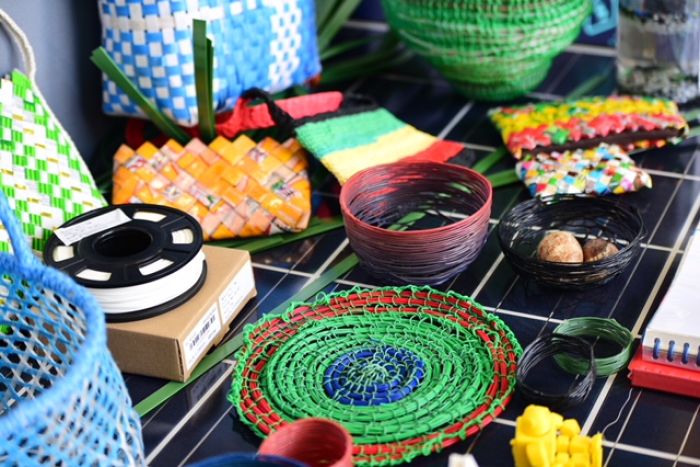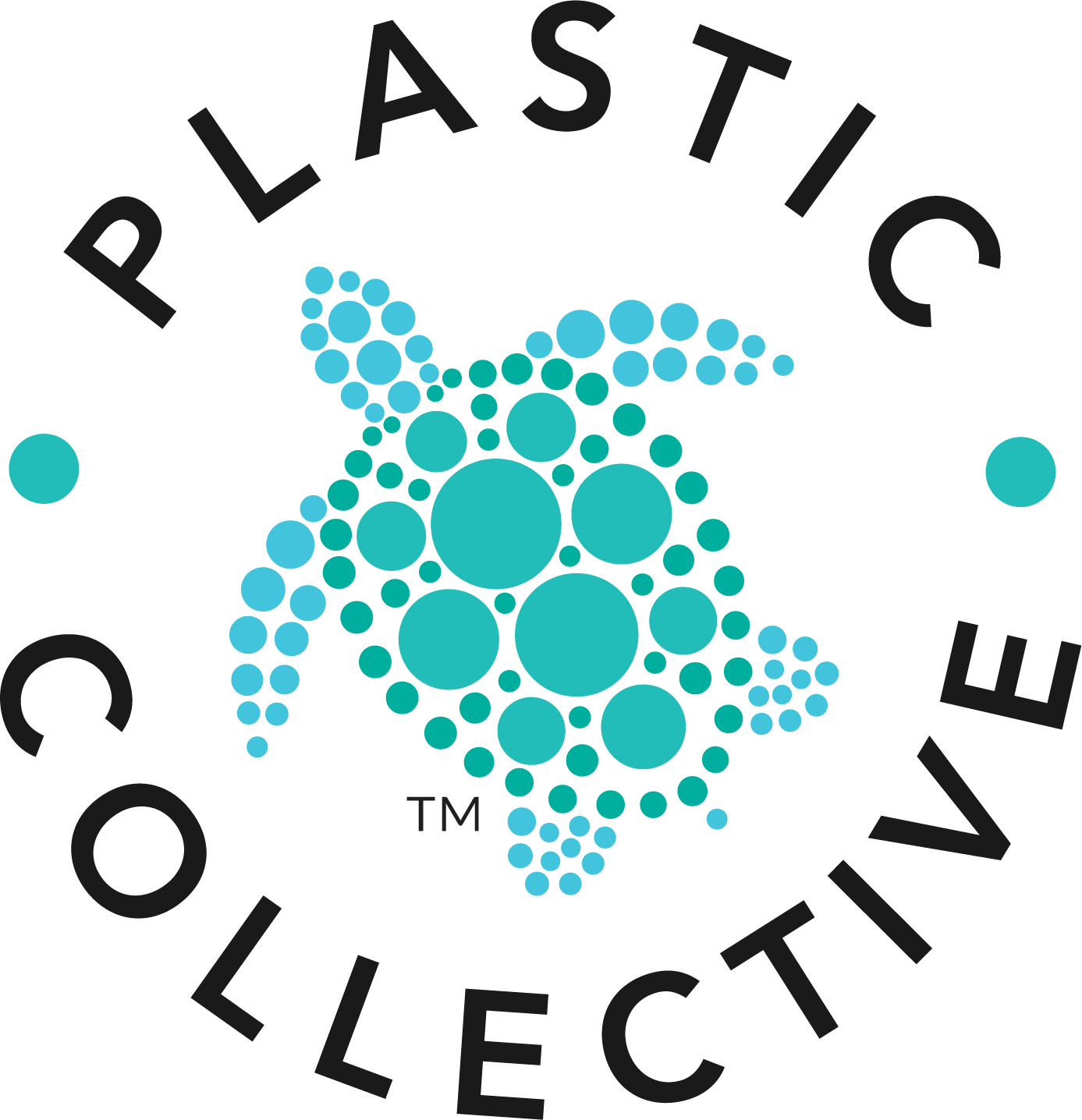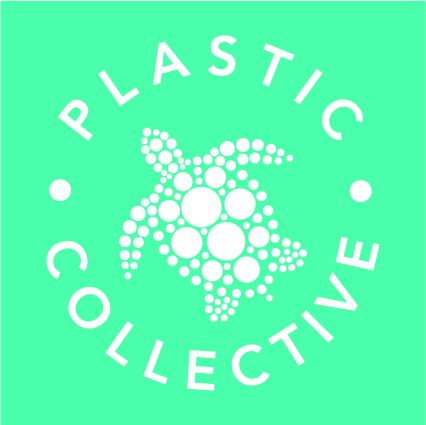‘Shruder’ program attracts Royal interest
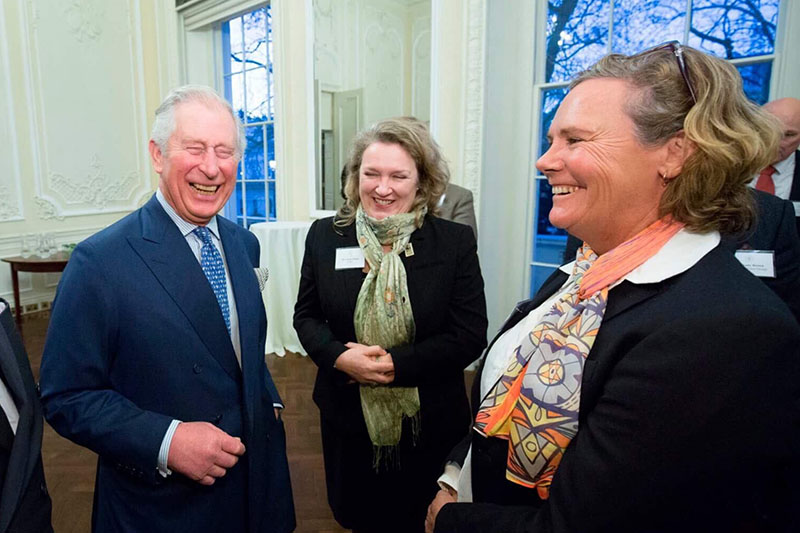
31st January, 2018. London, UK. (International Sustainability Unit)
A machine which shreds and extrudes marine plastic into usable items is attracting high-level international interest — including from Prince Charles.
The ‘shruder’ is the invention of Louise Hardman, a Coffs Harbour-based environmental scientist and teacher.
Founder of the Plastic Collective Ms Hardman said it was vital to try to turn back the tide of marine pollution in the Asia-Pacific region.
“By 2050 it is estimated there will be more plastic in our oceans than fish,” Ms Hardman said.
Ms Hardman has just returned from a successful trip to London at the request of the Prince of Wales for his International Sustainability Unit meeting on Plastic Pollution & The Circular Economy.
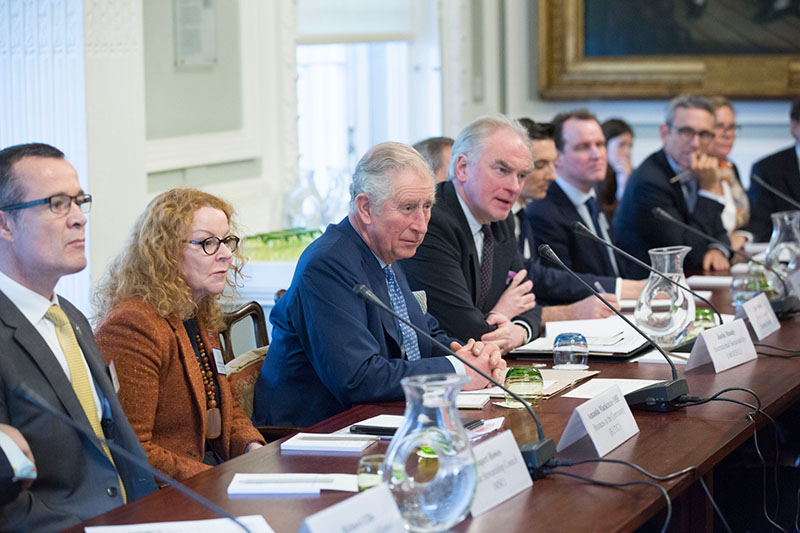
Production of her machine is starting to ramp up and Ms Hardman said she was buoyed by the royal support.
“The latest thing that’s happened is I was invited over to a meeting in the UK with the International Sustainability Unit run by Prince Charles,” she said.
“It is the third in a series that he’s been doing based on plastic pollution and the circular economy, and how to keep plastics out of the ocean because he’s very concerned about it.”
The sustainability unit has been set up to bring businesses and environmentalists together to find solutions.
Ms Hardman said since that meeting she had started working with large organisations such as Coca-Cola and the World Wildlife Fund (WWF).
The NSW Governor David Hurley, on a recent visit to Coffs Harbour, got to see first hand how the Shruder processed plastic waste into products such as filament wire for computers, and whipper snipper cord.
He said it was a brilliant idea and he looked forward to it going ahead.
Ms Hardman said the first machines would be rolled out at Airlie Beach next week in a partnership with Ecobarge Clean Seas.
The next opportunity would be in Bali and potentially Vanuatu — but ultimately Ms Hardman wanted many more.
“I’d like to build 100,000 machines,” she said.
“Basically there are about 4,000 islands that we’re focused on that are earning less than $5,000 a year. These 4,000 islands are in the Asia-Pacific region where 60 per cent of the world’s plastic is originating from and going into the ocean.
“There are a lot of people living on these islands and they have next to no waste collection because of their economy.”
Ms Hardman said Coca-Cola South Pacific was helping to sponsor the Whitsundays program.
